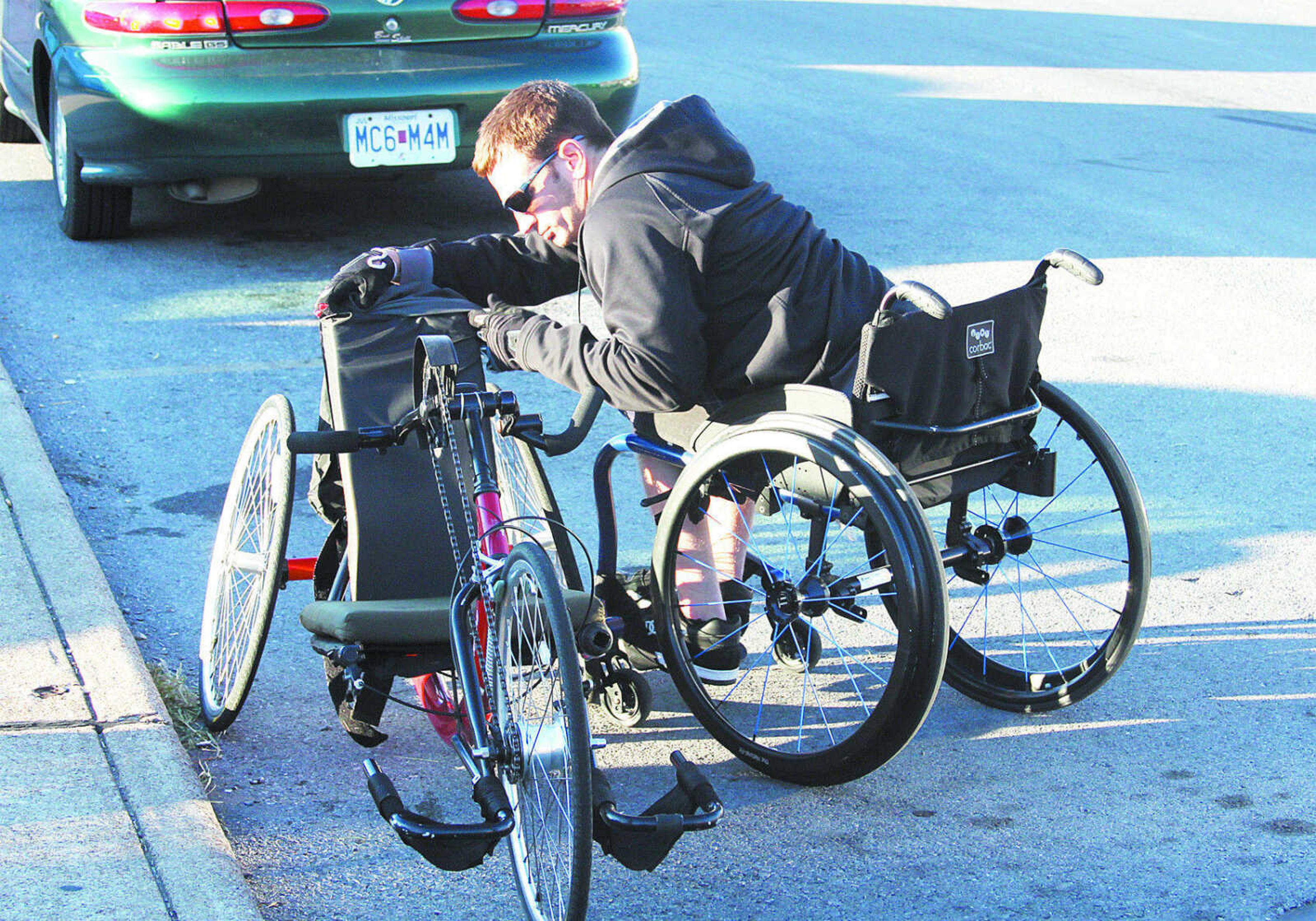Approximately one out of every 10 college students has a disability.
Counseling and Disability Services aids such students at Southeast Missouri State University. The Disability Services office sees a wide variety of disabilities, such as ADHD, learning disabilities, blindness, deafness, chronic illness, loss of limbs, mental health disorders, anxiety issues, autism, brain trauma and cognitive issues.
According to Emily Oliveira, coordinator of Disability Services, the office provides mostly academic related services and support for students who register with them. These services include working with faculty to ensure that the student receives the accommodations they require such as extended time on tests and note-taking assistance. The office also provides audio books and sign language interpreters as well as academic coaching and skill building. A lab in the office features assistive technology to make computer use possible for students with a variety of disabilities including visual, learning and physical.
A student who uses these services can choose their level of privacy. However, Oliveira encourages students who may have suffered from bullying or discrimination in their past to be open about their disability.
"It's interesting to see that switch when a student realizes 'Oh, this is not something to be embarrassed about' or 'This is just a part of me' and see that it's not the same experience that it was in high school," Oliveira said. "I like that part. It's always positive."
In collaboration with the College of Education, the office holds the Transitioning Academy for new Southeast students to help them become acquainted with the campus and make the move to a new environment easier.
The office works year round to prepare for its annual holiday--Disability Awareness Month in October. In the past, the office worked with the University Speakers Series to bring in Aron Ralston, the hiker who was forced to amputate his own arm after a hiking accident. On Oct. 26, the series will welcome Michael J. Fox, who has Parkinson's disease. In the future they hope to work with local school districts during disability awareness program.
The office also partners with Student Activities Council to bring in acts that have to do with disability awareness.
"I really like that we have the collaboration with Student Activities Council and that other individuals on campus are starting to plan events that include disability into either their diversity series or into their planning," Oliveira said. "That's dropping that stigma that having a disability means something's wrong with you, that having a disability is a negative thing."
With the help of Delta Alpha Pi, the office is also working to develop a regular presentation called "Things Aren't Always What They Seem."
Delta Alpha Pi is a new-to-campus honor society for students with disabilities.
According to the honor society's president and Southeast senior Brian Sallade, "Things Aren't Always What They Seem" will provide a chance for students with disabilities to talk about their personal stories and disabilities as well as take student questions in a panel setting. The first one is tentatively scheduled for Oct. 24 in the University Center's Indian Room.
Sallade hopes that the event will help faculty and students realize that though they sometimes need extra help, students with disabilities are still fully capable -- and normal human beings, too. He encourages members of the disabled community at Southeast to become leaders and get involved on campus. In the future, the honor society hopes to develop a mentoring program.
"I want to improve or give assistance to other students who have a disability and make their lives easier," Sallade said. "I want to base it on my own experiences and things I've learned firsthand."
Disability Services is growing quickly. Last fall the office saw between a 30 and 40 percent increase in registered students. This fall, the office surpassed that number only six weeks into the semester. Oliveira credits this to an increase in students leaving the work force to continue their education, the expanding veteran population, more diagnoses and higher awareness in general. Over 250 active students are registered with Disability Services, 50 of which were new this fall.
Oliveira makes a point of recognizing normalcy when talking to and about students with disabilities.
"[We] really try to focus on the student and not just the diagnosis," Oliviera said. "To find out what barriers they're experiencing in the classroom and find out how their disability impacts them and then work from there to provide them with services they need.
"Individuals with disabilities are people first. Though their disability may be a part of them, it doesn't define them as a person."




